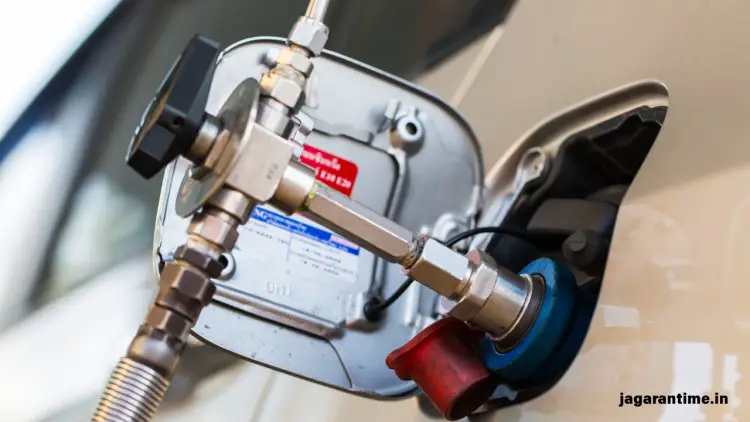Puttur Civic Body Converts Wet Waste into BioCNG to Operate Six Vehicles
Puttur civic body has taken a significant step in waste management by converting wet waste into BioCNG. This BioCNG is used to operate six vehicles, promoting sustainability and green energy.

A Step Towards Sustainable Waste Management
In recent years, the growing concern about waste management and its environmental impact has led cities worldwide to explore innovative solutions. Puttur, a town in the southern part of India, is making headlines with its impressive initiative to convert wet waste into BioCNG, a renewable form of energy. This BioCNG is now being used to power six vehicles operated by the civic body, marking a significant milestone in sustainable waste management and clean energy use.
The conversion of wet waste to BioCNG offers a unique solution to the twin challenges of waste disposal and rising fuel costs. This eco-friendly approach not only reduces the amount of waste sent to landfills but also helps in reducing greenhouse gas emissions, making it a significant step in Puttur's commitment to a greener, cleaner future.
What is BioCNG and How is it Made?
BioCNG, or Biogas Compressed Natural Gas, is a clean and renewable fuel produced by the anaerobic digestion of organic waste. Organic waste such as food scraps, agricultural residue, and wet waste from households are decomposed by bacteria in the absence of oxygen to produce methane gas. This methane is then purified and compressed to create BioCNG, which can be used as an alternative to conventional fossil fuels for transportation and energy production.
The process involves three key steps:
1. Waste Collection: Wet waste is collected from households and businesses in Puttur.
2. Anaerobic Digestion: The waste is then processed in a biogas plant where microorganisms break down the organic matter in the absence of oxygen.
3. Purification and Compression: The resulting methane is purified to remove impurities, compressed, and stored in cylinders for use as BioCNG.
The BioCNG produced can be used in vehicles, making it a sustainable alternative to petrol, diesel, or LPG. It not only helps reduce the reliance on fossil fuels but also provides a way to deal with organic waste efficiently.
Puttur Civic Body’s Initiative
The Puttur civic body’s initiative to convert wet waste into BioCNG is a shining example of how local governments can play a pivotal role in addressing waste management and energy issues. This initiative began with the aim to solve the problem of waste disposal while promoting cleaner, greener energy sources. With the increasing volumes of wet waste generated by the city, especially from households, markets, and eateries, traditional methods of disposal were not only inefficient but also contributed to environmental pollution.
To address this issue, the civic body decided to set up a BioCNG production facility. The plant now processes the wet waste and converts it into BioCNG, which is then used to fuel six vehicles used by the municipal corporation. This eco-friendly step ensures that waste is not just discarded but is instead put to productive use.
The vehicles powered by BioCNG are primarily used for various municipal services, including waste collection, street cleaning, and other civic duties. The use of BioCNG in these vehicles reduces the city's dependence on conventional fossil fuels and helps in lowering the carbon footprint of municipal operations.
Benefits of Converting Wet Waste into BioCNG
The decision to convert wet waste into BioCNG brings with it a range of benefits, both environmental and economic. Let's take a look at some of the key advantages of this initiative:
1. Waste Reduction: By converting wet waste into BioCNG, Puttur is effectively reducing the amount of waste that ends up in landfills or open dumping sites. This helps in minimizing land and water pollution and reducing the risk of health hazards posed by improperly disposed waste.
2. Cleaner Energy: BioCNG is a clean, renewable alternative to fossil fuels such as petrol and diesel. By using BioCNG in vehicles, Puttur is contributing to a reduction in air pollution and greenhouse gas emissions, which is essential in the fight against climate change.
3. Economic Savings: By using BioCNG as a fuel, the Puttur civic body is able to reduce its reliance on expensive fossil fuels. This not only saves costs on fuel but also creates a sustainable source of energy within the city, thereby contributing to long-term economic benefits.
4. Job Creation: The establishment of a BioCNG production facility has created jobs for local people. From the collection of wet waste to the operation of the biogas plant, this initiative provides employment opportunities for individuals in the city.
5. Sustainability and Circular Economy: The BioCNG initiative is a prime example of a circular economy, where waste is transformed into valuable resources. The wet waste, instead of being treated as a nuisance, is being utilized for productive purposes. This model encourages other cities to adopt sustainable practices for managing waste and energy resources.
Puttur’s Commitment to Sustainability
Puttur has shown great commitment to sustainability and environmental conservation through its various initiatives. The BioCNG project aligns with the city’s broader goals of reducing pollution, conserving natural resources, and promoting clean energy solutions. As part of India’s push towards a cleaner and greener future, this project can serve as a model for other municipalities across the country.
In addition to the BioCNG initiative, Puttur has also undertaken other waste management programs such as the segregation of waste at source and promoting recycling. The city has been working to encourage residents to reduce, reuse, and recycle, thereby contributing to waste minimization at the community level.
Puttur’s efforts to adopt sustainable waste management practices and clean energy solutions are making a significant impact on both the local environment and the community’s quality of life.
How Other Cities Can Learn From Puttur’s Initiative
Puttur’s initiative to convert wet waste into BioCNG is an inspiring example of how small towns can lead the way in sustainability. Cities across India and the world can learn valuable lessons from Puttur’s success. By focusing on local waste management, creating efficient recycling processes, and utilizing renewable energy sources, municipalities can significantly reduce their environmental impact and make their cities more sustainable.
The establishment of BioCNG plants and the use of alternative fuels can also play a major role in reducing the overall carbon footprint of cities. As more cities move toward sustainable waste management practices, the collective impact will be felt globally in the form of cleaner air, reduced waste, and a healthier planet for future generations.
A Green Future for Puttur
Puttur’s decision to convert wet waste into BioCNG is a significant achievement in the field of sustainable waste management and green energy. This innovative project not only helps in reducing waste but also provides a cleaner, more cost-effective energy source for the city’s municipal vehicles. With this initiative, Puttur is setting a great example for other cities to follow and showing the world that small steps can lead to big changes in building a more sustainable future.
As more and more cities across India and globally begin to recognize the importance of sustainable waste management and renewable energy, Puttur’s initiative serves as a beacon of hope and inspiration for creating a cleaner, greener world.
Disclaimer: This blog is for informational purposes only. For more detailed advice on waste management and renewable energy projects, please consult experts.













